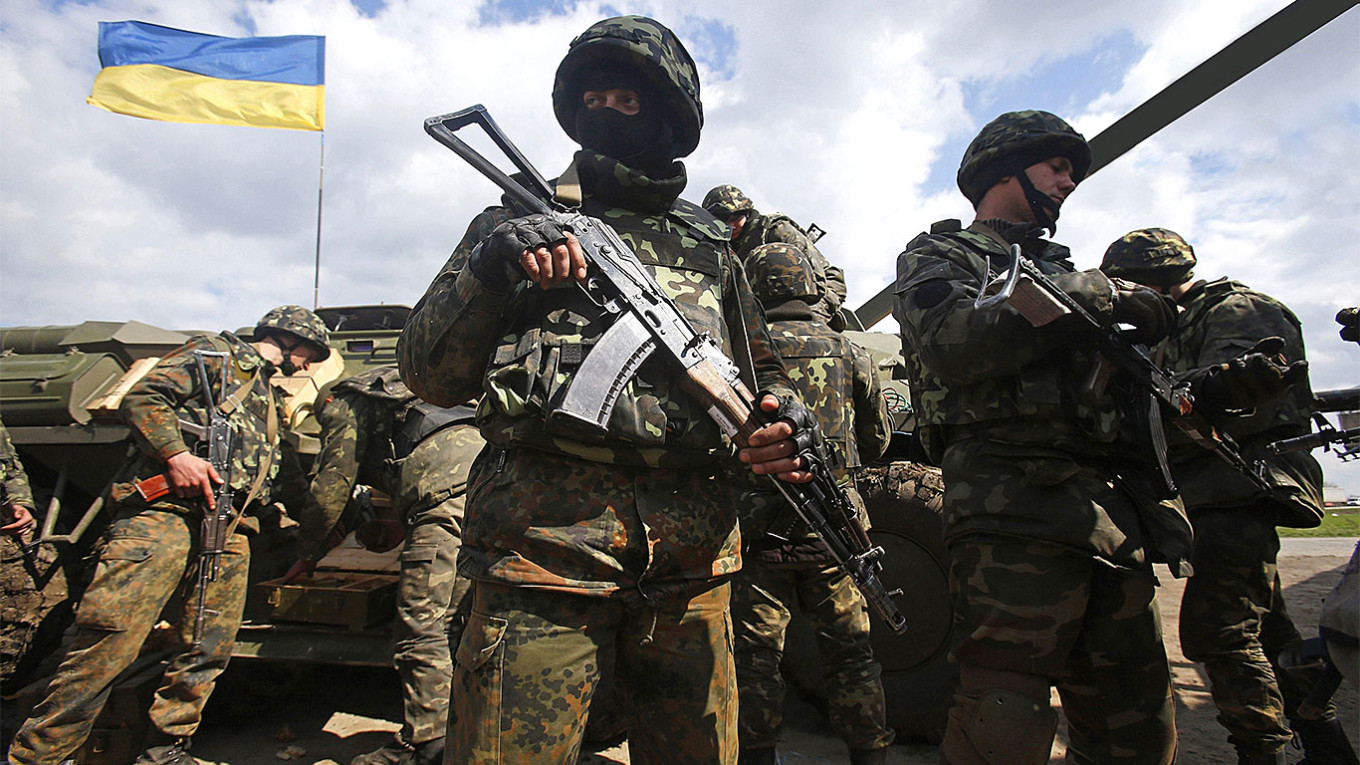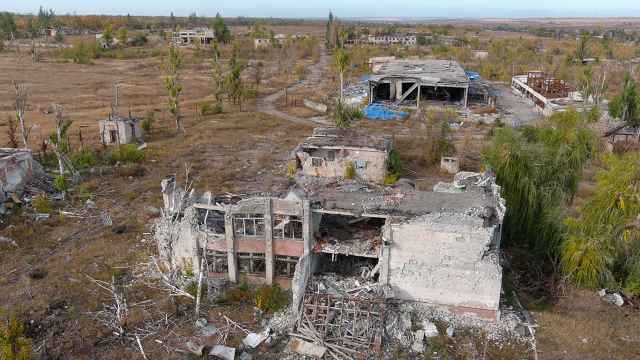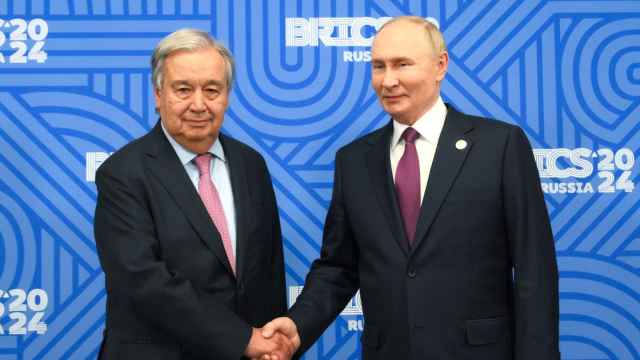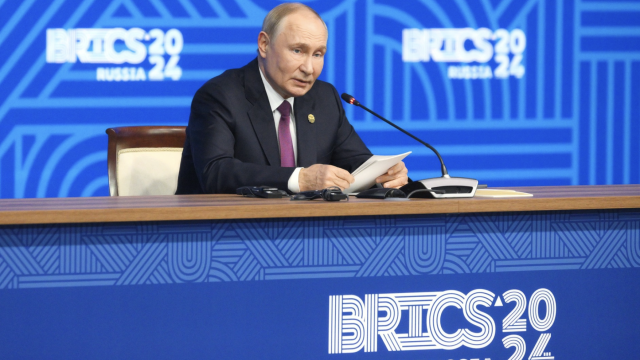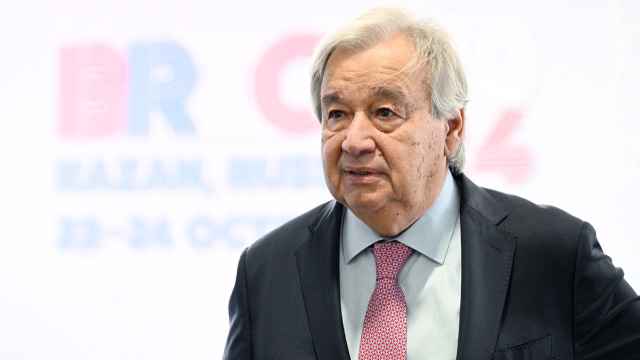Russia’s full-scale invasion of Ukraine on Feb. 24, 2022, deserves a place in history books for being more widely anticipated in Washington than in Moscow — or even Kyiv.
In the weeks before that fateful Thursday, U.S. officials, relying on their own intelligence sources, predicted confidently that Russia was going to attack Ukraine. In contrast, senior Kremlin officials seemed taken by surprise — judging by their faces — during the Security Council meeting on Feb. 21, 2022, when Vladimir Putin tore up the Minsk agreements by recognizing the so-called Donbas People’s Republics as independent, paving the way for all-out war.
Putin had apparently only shared his plans with a few trusted people like Defense Minister Sergei Shoigu and Security Council Secretary Nikolai Patrushev. However, the U.S. did not share details of their intelligence widely with its allies either. A fairly good proof for this is that the head of Germany’s foreign intelligence service, Bruno Kahl, was in Kyiv for talks on Feb. 24. He had to be hastily evacuated by car.
Poor intelligence is one thing. What is much more serious is that both Ukraine and her friends in the West systematically failed to anticipate a large-scale war. This has much to do with the fact that such a scenario just seemed too irrational.
Even in early 2022, when Russia had deployed more than 100,000 troops along the border with Ukraine, many experts argued that this force was too small to take large cities like Kyiv and Kharkiv without massive losses. On Jan. 24, one month before the invasion, a group of Ukrainian military experts argued that a full-scale invasion to capture most or all of Ukraine would be “an adventure with no chance of success.”
They were proven right — the initial invasion force failed miserably. But more importantly, the Kremlin did not appear to realize they were setting themselves up for failure. Today, we can safely assume that Putin, surrounded by sycophantic yes-men, simply believed that Ukrainians would welcome his troops with flowers. Few people guessed the level of misinformation and naivety that must have guided the Kremlin’s decisions.
The other compelling argument against a fresh Russian invasion was the prospect that the West would respond with sanctions much harsher than in 2014. In the 2020 book “Beyond Frozen Conflict” (with Thomas de Waal), I argued that both sides were deterred from breaking the truce by “asymmetric mutual deterrence.” While Ukraine’s armed forces were facing an adversary four times its size, Russia was facing the likelihood of much harsher sanctions.
While the sanctions did come, initial expectations that the measures would cripple or destroy the Russian economy have not come true so far. Whether this was anticipated in the Kremlin or not may seem unimportant. The risk certainly did not put Putin off.
Again, the lesson here is that Putin and his cronies make different cost-benefit calculations than many Western democracies — if they make them at all. This also holds for the costs of running occupied territories. This was another aspect that led many observers — including myself — to believe that Russia would not break up the status quo in place since 2015, when the “Package of Measures,” commonly known as “Minsk 2,” was signed in the Belarusian capital.
The extremely messy and potentially costly experience of controlling the Donbas should have actually deterred Putin. Between 2014 and 2018, numerous field commanders were assassinated in the region after they had resisted the Moscow-installed administrations. For example, in 2017, Donetsk sent troops to Luhansk to help depose local strongman Igor Plotnitsky. A year later, Plotnitsky’s rival in Donetsk, Alexander Zakharchenko, was killed in a bomb explosion that bore the hallmarks of an inside job.
These violent troubles made observers speculate about infighting in Moscow over the republics, leading to headlines about the Kremlin’s factional infighting. However, the eight years in which the Donbas People’s Republics existed as Russian-sponsored lawless black holes in Ukraine’s flank, showed that Moscow was totally unwilling to let them return to Ukraine — contrary to both the spirit and the letter of the Minsk agreements. From 2014 onwards, any pro-Ukrainian sentiment inside these regions was crushed by the local State Security Ministries. Their cruel record of detaining and torturing dissenters is unrivaled anywhere in Russia, save Ramzan Kadyrov’s Chechnya.
As the years passed, the People’s Republics increasingly became infamous as neo-Stalinist outposts for Moscow’s imperial ambitions. While it was clear that Putin was only interested in the potential they had to prevent Ukraine’s integration into the West, few predicted that these little military dictatorships would be blueprints for a new, brutal Russian dictatorship that jails the opposition and stifles dissent everywhere.
Could all this have been prevented in 2014? Of course, more Western support would have made Ukraine stronger, and tougher sanctions would have made Russia weaker. Whether this could have prevented the 2022 invasion is debatable.
As I argued above, there are many indicators that Moscow did not see itself on a road to war over the years. To the best knowledge, Putin is no strategist. Rather, he is a tactician who decides often hesitantly without long-term thinking. I am quite certain that his (crazy) plan to conquer Kyiv only materialized during his Covid-induced self-isolation when he must have read too many bad history books and talked to few and too dubious people.
This is not to deny that Western policies were mostly driven by largely naïve hopes. Not a single point of the Minsk agreements was ever really implemented, and the belief — popular in Germany — that closer economic ties would foster democracy in Russia was finally proven untrue. But in 2014 and 2015, it was simply more attractive to hope for a return to business-as-usual with Putin rather than declaring a turning point to contain and deter Russia’s imperial ambitions. The fact that more than two years later, Chancellor Olaf Scholz’s famous Zeitenwende declaration is still far from implementation only proves how hard it is to change the complacency and ignorance-driven mindsets of Europeans, especially those in the west of the continent.
Rather than debating who was right and wrong, Europe now needs to learn from its mistakes. It needs to learn quickly and forcefully because too much is at stake. Our biggest hope for Russia now hinges on the defeat of Putin’s armies on the battlefields of Ukraine.
A Message from The Moscow Times:
Dear readers,
We are facing unprecedented challenges. Russia's Prosecutor General's Office has designated The Moscow Times as an "undesirable" organization, criminalizing our work and putting our staff at risk of prosecution. This follows our earlier unjust labeling as a "foreign agent."
These actions are direct attempts to silence independent journalism in Russia. The authorities claim our work "discredits the decisions of the Russian leadership." We see things differently: we strive to provide accurate, unbiased reporting on Russia.
We, the journalists of The Moscow Times, refuse to be silenced. But to continue our work, we need your help.
Your support, no matter how small, makes a world of difference. If you can, please support us monthly starting from just $2. It's quick to set up, and every contribution makes a significant impact.
By supporting The Moscow Times, you're defending open, independent journalism in the face of repression. Thank you for standing with us.
Remind me later.



